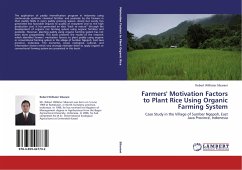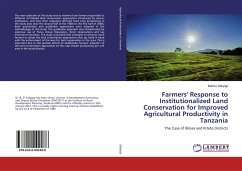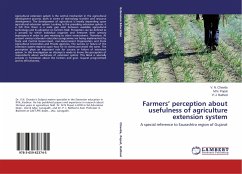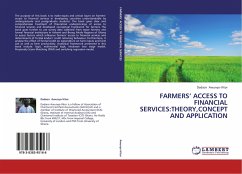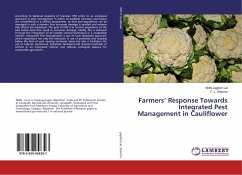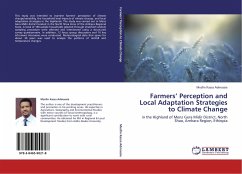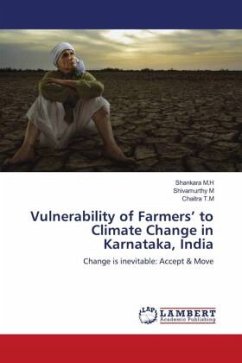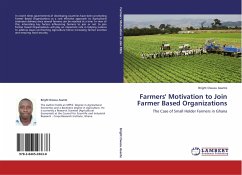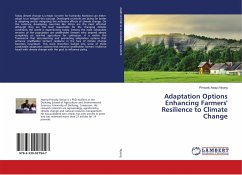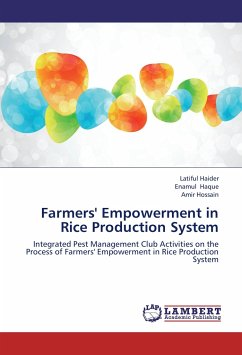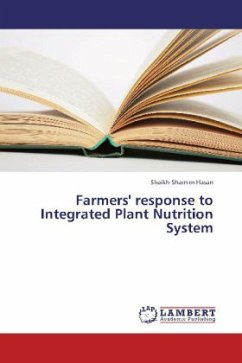
Farmers' response to Integrated Plant Nutrition System
Versandkostenfrei!
Versandfertig in 6-10 Tagen
32,99 €
inkl. MwSt.

PAYBACK Punkte
16 °P sammeln!
The main purpose of this study was to determine response of the farmers towards Integrated Plant Nutrition System (IPNS). Ninety respondents were selected following two-stage proportionate random sampling technique. The study also aimed at explaining the assessment of the present status of IPNS at farmers level. The findings indicated that most of the respondents were middle aged (66.7%) had primary level of education (61.1%), had small farm size (60%) and a small family size (51.1%). The respondents had medium extension contact (58.9%) and medium organizational participation (55.6%). It was a...
The main purpose of this study was to determine response of the farmers towards Integrated Plant Nutrition System (IPNS). Ninety respondents were selected following two-stage proportionate random sampling technique. The study also aimed at explaining the assessment of the present status of IPNS at farmers level. The findings indicated that most of the respondents were middle aged (66.7%) had primary level of education (61.1%), had small farm size (60%) and a small family size (51.1%). The respondents had medium extension contact (58.9%) and medium organizational participation (55.6%). It was also found that most of the respondents were early adopters (42.2%) with a medium knowledge on IPNS. The respondents had favorable attitude with medium to high response (68%) towards IPNS. Moreover, education, extension contact, cosmopoliteness, innovativeness and balanced fertilizer use had strong and positive relationship with the knowledge, attitude and skill of the respondents to IPNS. Farmers extension contact and their innovativeness contributed significantly to develop their favorable response to IPNS. Among the problems shortage of cowdung were more predominant.



